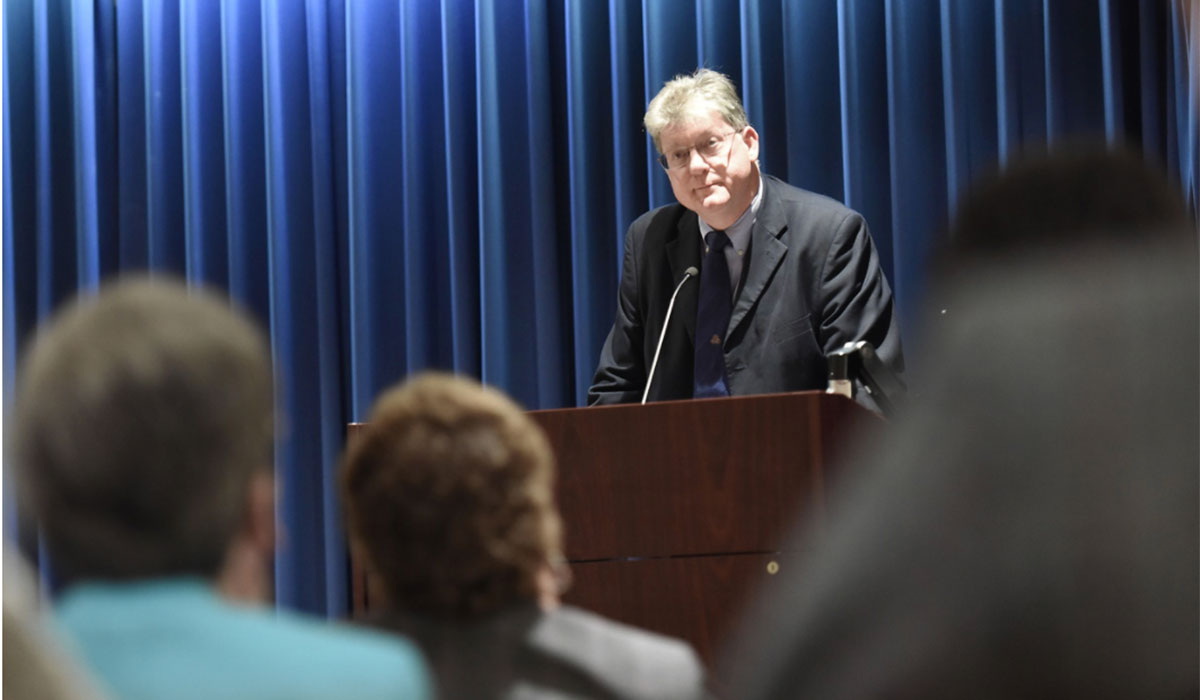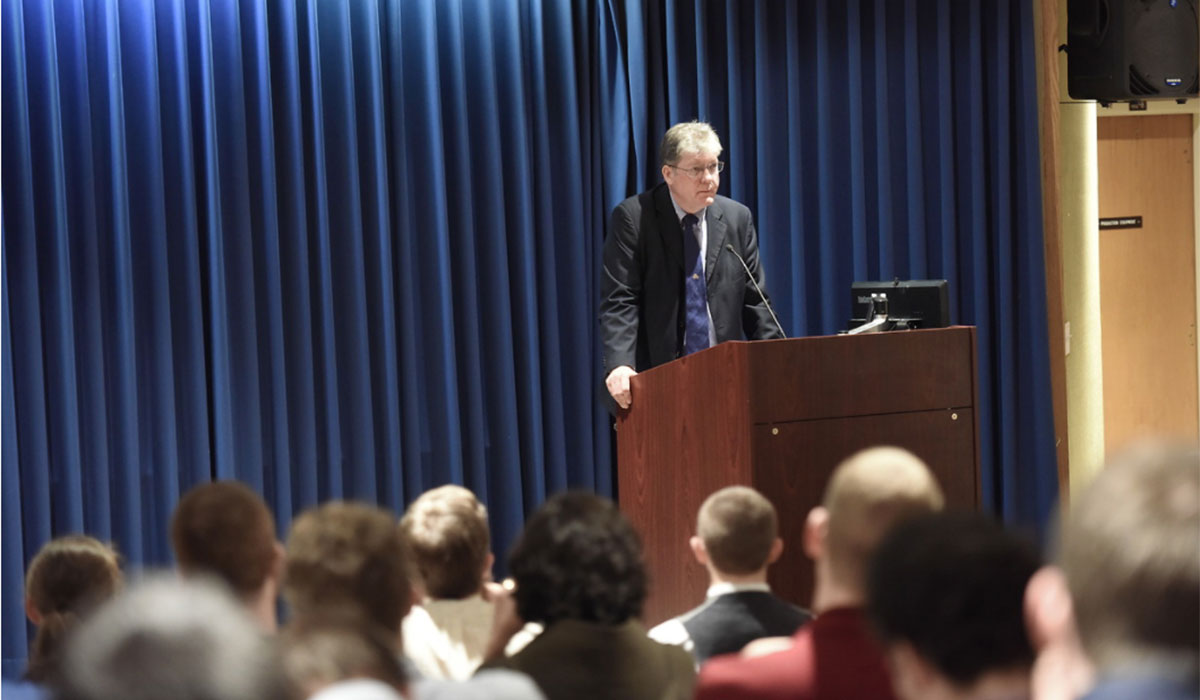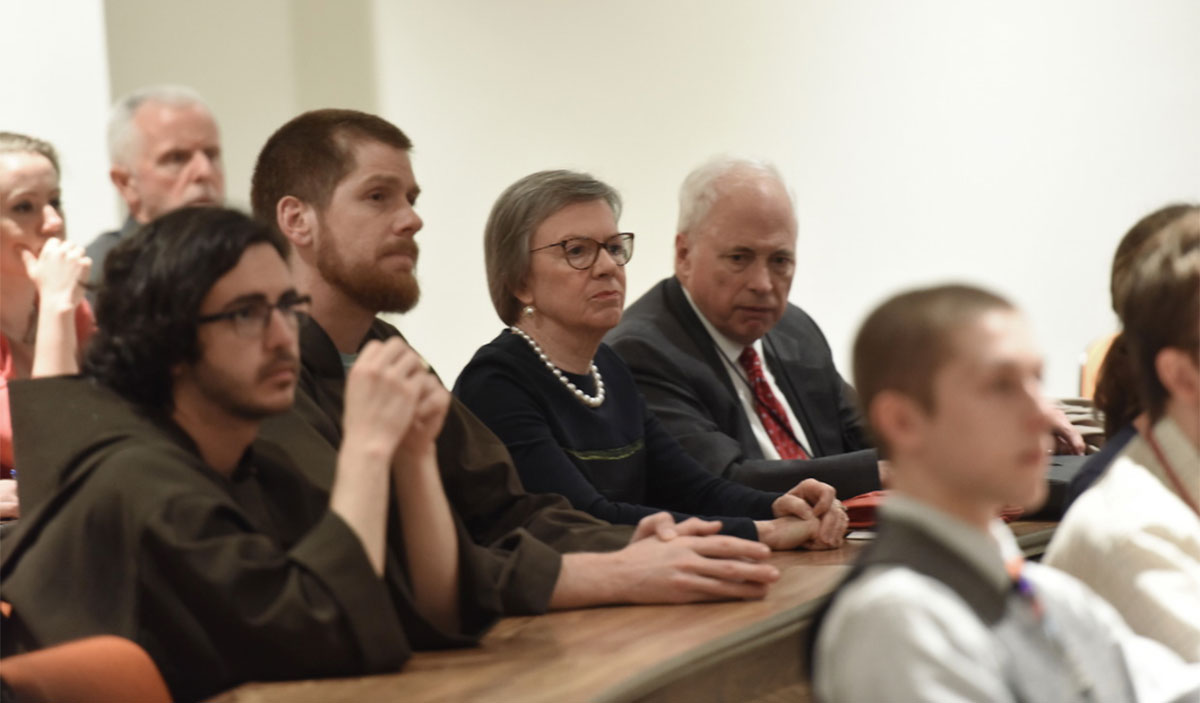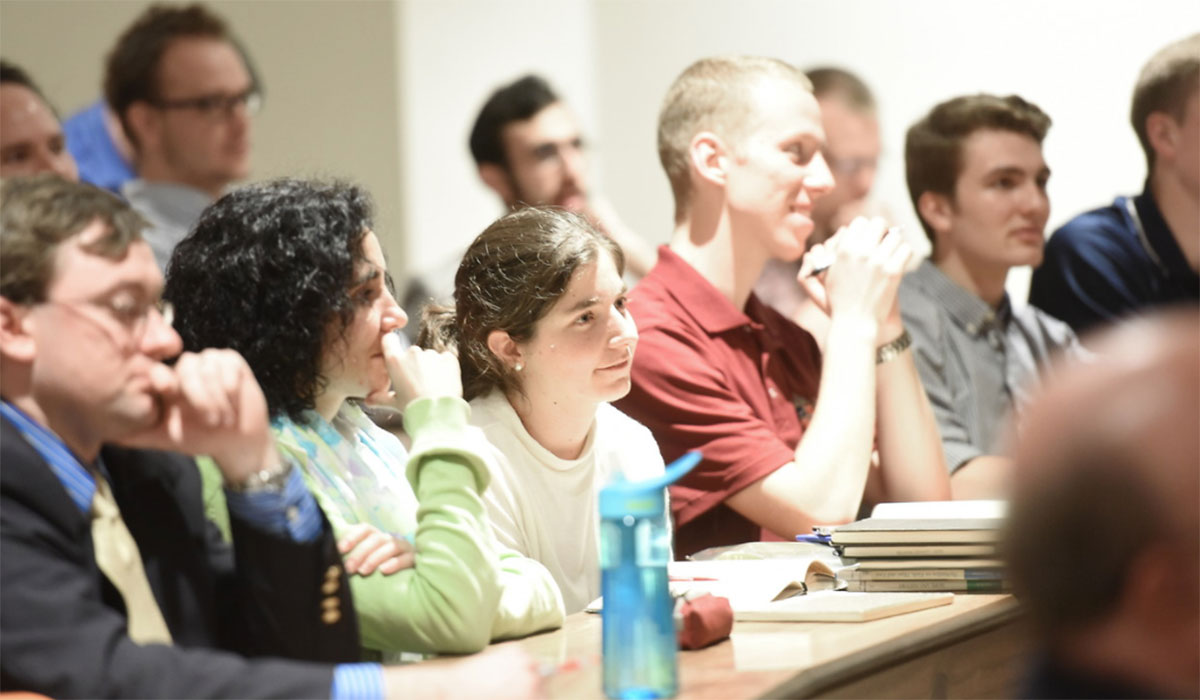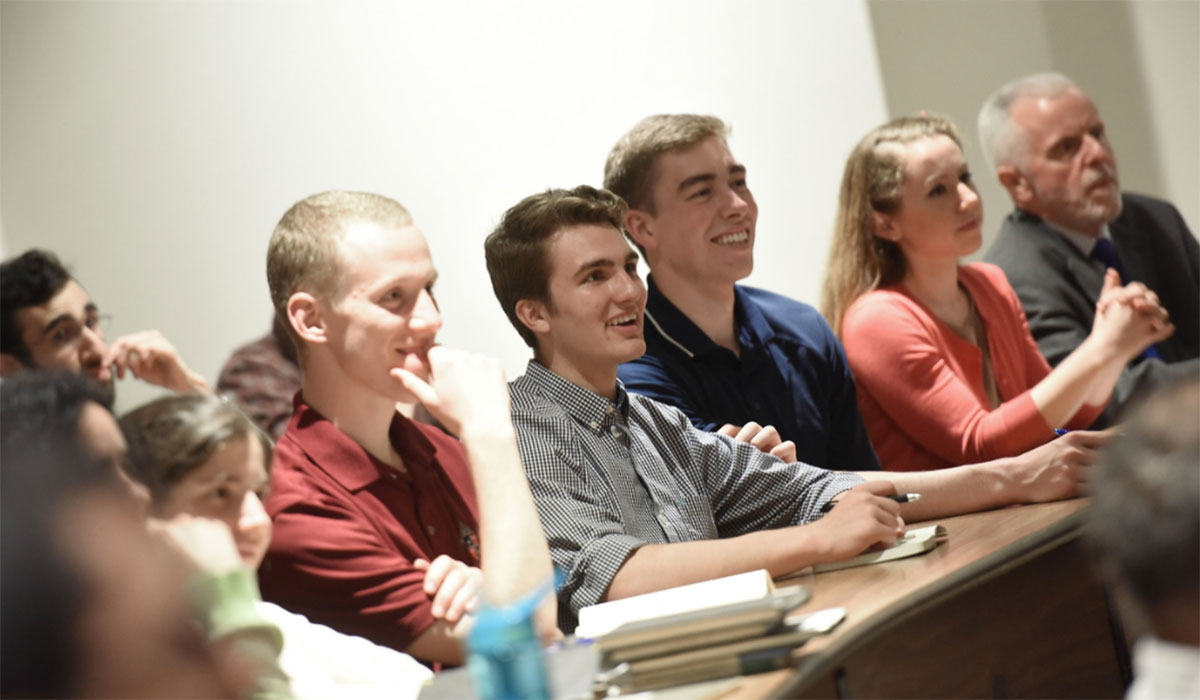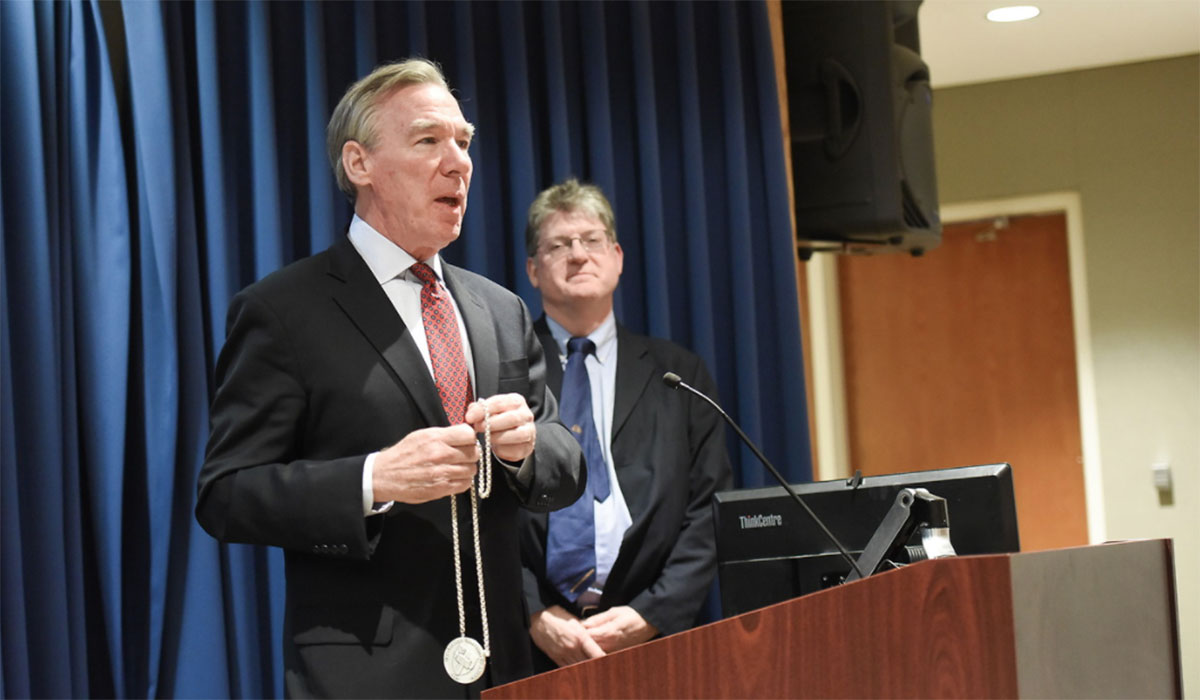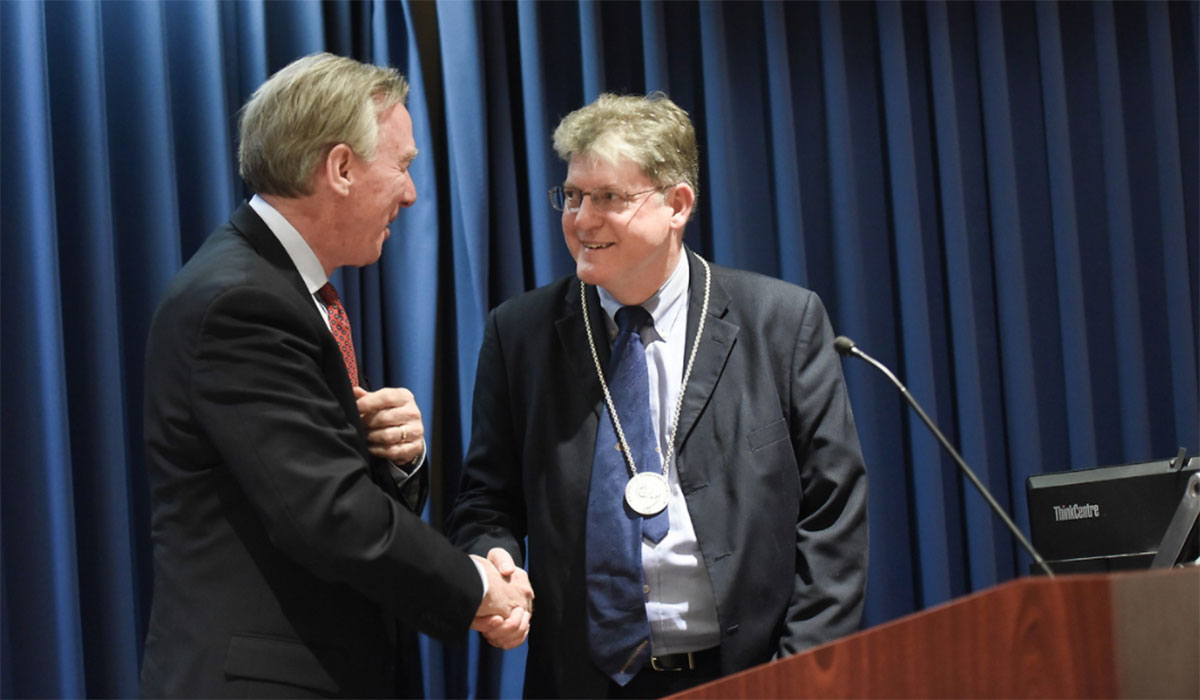
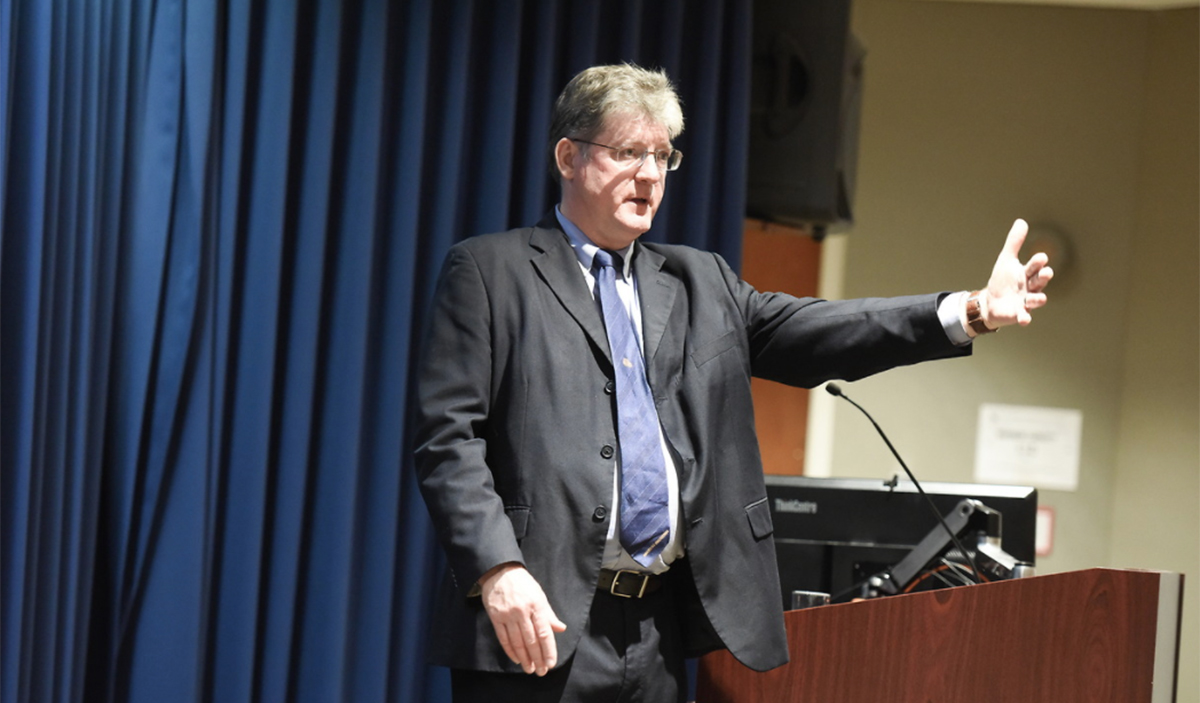
In his first lecture as the Fr. Kurt Pritzl, O.P., Chair of Philosophy, Professor Timothy Noone honored the memory of the much-beloved priest who led the School of Philosophy prior to his death in 2011 with a talk on the history of philosophy.
“All of us in the School of Philosophy loved Kurt very much and remember him regularly in our daily conversation and deliberations,” said Noone who delivered his address April 21 to a standing-room-only audience of students and colleagues in Aquinas Hall Auditorium. Noone noted that his topic — “History, Philosophy, and the History of Philosophy” — “would be of philosophical interest to [Father Pritzl] were he still alive.”
John McCarthy, current dean of philosophy, described Father Pritzl as “the very paragon of an academic administrator … a blessing to all who knew him.” Noting that Father Pritzl served as dean until shortly before “his untimely death” in February 2011, McCarthy thanked the anonymous donor whose generosity led to the establishment of the chair “in the name of one who embodied it so well.”
In laying out the thesis of his talk, Noone, said, “Fr. Kurt as well as many of the rest of us in the School of Philosophy concern ourselves primarily with the history of philosophy in our teaching and research.”
Noone acknowledged that they are involved in a pursuit “not too often recognized as valuable in the wider philosophical community, namely, engaging in philosophical reflection and analysis in and through the study of the history of philosophy.” He continued by posing a question: “What good is knowledge of the history of philosophy for someone seeking philosophical knowledge?”
In response to that question, he noted that “the history of philosophy provides us with incomparably important materials for philosophical reflection and hence that the materials we study from the past are philosophically valuable in addition to whatever value they may possess regarding the advancement of historical knowledge on particular subjects.”
Noone added that the “history of philosophy is not superfluous to the study and practice of philosophy, but essential and necessary. The essential character of the relation between philosophy and its history is not only evident in the education and intellectual development of philosophers during their formation, but even in the practice of philosophical inquiry.”
Read the full text of Noone’s lecture
Sophomore Danielle Schirripa, a philosophy major, from Lexington, Mass., described the lecture as “very informative. Dr. Noone gave us lot of information to think about. I’ve never heard that kind of analysis of the history of philosophy. His talk makes me extremely grateful to be part of the School of Philosophy, where we have experts giving talks on topics of this kind.”
Noone, who joined the University’s philosophy faculty in September 1994, is an expert in medieval philosophy, in particular the writings of Scottish philosopher-theologian Dun Scotus. He served as president of the Society for Medieval and Renaissance Philosophy from December 2010 to December 2012 and as president of the American Catholic Philosophical Association from November 2006 to November 2007.
“Irrepressible is a word that readily comes to mind when describing [Noone’s] enthusiasm for philosophy,” McCarthy noted.
Following the lecture, University President John Garvey presented Noone with a medallion that is bestowed on faculty members who hold academic chairs.
